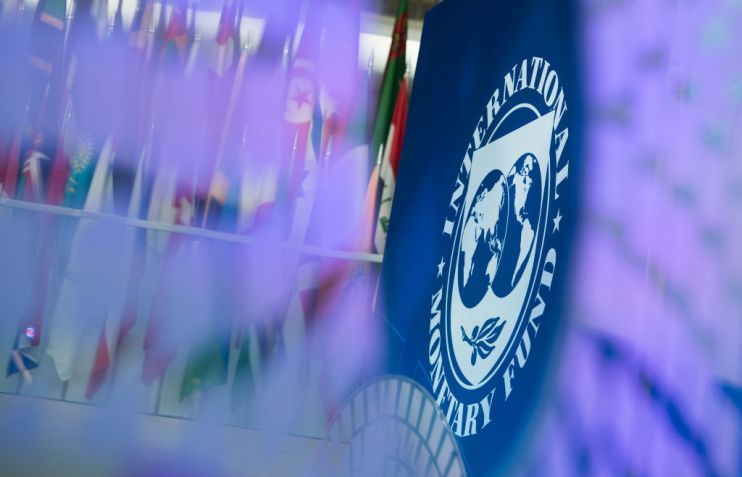IMF warns over Brexit and trade wars as it cuts global growth forecast

The International Monetary Fund (IMF) has cut its forecast for global economic growth over the next two years and said that a disorderly Brexit could damage global investment and trade.
Read more: Race begins for IMF top job as Christine Lagarde submits resignation
The Fund lowered its prediction for global growth by 0.1 percentage point in both years to 3.2 per cent in 2019 and 3.5 per cent in 2020, citing the effects of the US-China trade war.
It now thinks global trade will grow by just 2.5 per cent in 2019, 0.9 percentage points lower than previously thought. But growth should recover to 3.7 per cent in 2020, the IMF said today in its world economic outlook report.
However, the Fund said an events such as “further US-China tariffs, US auto tariffs, or a no-deal Brexit” could “sap confidence, weaken investment, dislocate global supply chains and severely slow global growth below the baseline”.
Moody’s credit rating agency said today that Boris Johnson becoming prime minister made it more likely that Britain would leave the European Union without a trade deal.
The global lender of last resort revised up by 0.1 percentage points the UK’s growth forecast for 2019 to 1.3 per cent. It kept the 2020 growth prediction at 1.4 per cent.
Yet it said this “forecast assumes an orderly Brexit followed by a gradual transition to the new regime” and noted that “the ultimate form of Brexit remained highly uncertain”.
Chief economist Gita Gopinath said the IMF did not foresee a recession in the global economy, but warned there were “significant downside risks” to global growth.
The report came more than two months after the US ratcheted up tariffs on $200bn of Chinese goods to 25 per cent. Meanwhile the UK is trying to untangle itself from the European Union, its biggest trading partner.
The Fund highlighted that the US economy was faring much better than China’s, which will please President Donald Trump. It raised its forecast for US growth in 2019 to 2.6 per cent, although it kept the 2020 forecast of 1.9 per cent growth unchanged.
By contrast China’s economy is now expected to grow 6.2 per cent in 2019 and six per cent in 2020, 0.1 percentage points lower than previously predicted for each year.
The report said indicators for the second quarter of 2019 suggest growth in China is slowing alongside the rest of Asia.
“In China, the negative effects of escalating tariffs and weakening external demand have added pressure to an economy already in the midst of a structural slowdown,” the IMF said.
Read more: IMF: No-deal Brexit could tip UK and EU into recession
The Fund’s report said the projected pick-up in growth in 2020 relied on central banks cutting interest rates, China relaunching stimulus programmes, trade tensions easing and an orderly Brexit.
(Image credit: Getty)